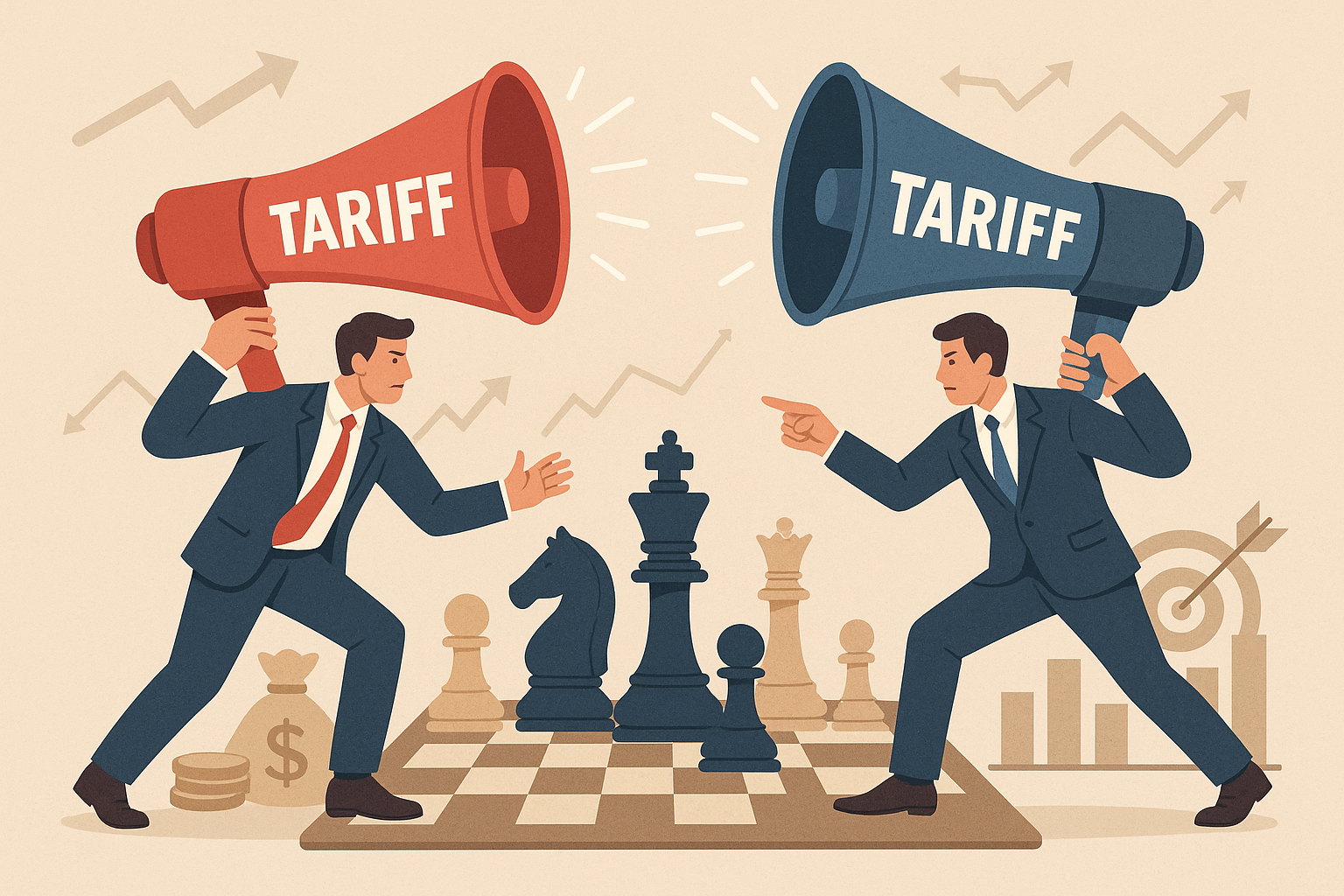In an effort to rebalance a trade deficit, the United States has decided to change its policy regarding customs duties. We have witnessed bidding wars and negotiations – and one thing is certain: we are not at the end of this series, which is as exciting from a strategic standpoint as it is worrisome from a business perspective. This change will directly impact the competitiveness of exporting companies.
As I mentioned in my previous article, it is essential to be fast and agile. At the same time, it is important to assess the immediate and medium-term impacts on sales, as well as to explore ideas for addressing them.
1. Current Orders in Process
- Reviewing Contracts:
It is important to review and analyze (with a business law specialist if necessary) the contracts currently in force. - Checking Contractual Clauses:
Look for clauses in the terms and conditions of purchase or sale that specify:- Whether the price includes import taxes (cf. your Incoterm);
- Whether the price can be readjusted in case of a change in law (the “Change in Law” clause);
- Whether force majeure events have been defined and if customs duties are included (this is rare);
- And consult a lawyer to identify any applicable case law.
- Renegotiation if Needed:
If the sales or purchase conditions do not provide a solution, try to renegotiate the price with the client by explaining the situation clearly, objectively, and transparently. - Cost Distribution:
If your client does not accept any price increase, consider spreading the cost over subsequent orders by negotiating a framework agreement that engages the client for the long term. - Creative Relationship Management:
Be as creative as possible to ensure the long-term maintenance of your relationship with the client and to avoid any decision that could seriously harm your business relationships. - Final Advice:
We are engaged in a war of attrition. Do not make any hasty decisions. Prepare yourself, but wait for the customs agreements to be finalized before taking action.
Sales Strategy
- Market Selection:
Some companies may choose to favor countries or regions where taxes are advantageous. This is a logical choice, but it should not come at the expense of other markets. To avoid such trade-offs, consider reorganizing with cost centers and local sourcing for countries with high import taxes. If such a decision is made, it should be accompanied by the establishment of a local sales structure. - Pricing Strategy (No to Price Increases, Yes to Added Value):
Is this the time to raise your prices? Certainly not, but you should increase the added value. Added value—which is defined as the benefit obtained or perceived minus the price paid—should be clearly explained to the customer by demonstrating the benefits they can gain from your offer (product or service). Now is the time for your sales force to bring out its best. Do not hesitate to highlight your long-term business relationships, reliability, quality, speed, and the advantages of your offer, and for your sales team, your authenticity and friendliness. Also, remember to include the “Change in Law” clause or to exclude from your price any tax other than that of your own country. When selecting an Incoterm, choose one that excludes both the tax and import formalities in the buyer’s country. - Offer Redesign:
It may be necessary to revise the formulation of your offer and, consequently, the product itself. For example, the SaaS model can be a solution to reduce customs duties. Is renting considered an import? It is wise to incorporate this consideration into your product strategy by consulting tax specialists. - Sales Process:
A thorough review of the contractual conditions before submitting a firm offer is essential. - Sales Channels:
Consider new sales models and channels, such as partnerships and/or direct sales, which may offer interesting solutions. - Customer Retention:
Consider implementing solutions to reward your loyal customers (bonuses, volume discounts with defined thresholds).
Are You in the Right Place?
- Opportunity for Local Companies:
If your company is based in a country that has implemented a drastic increase in its import taxes, this is an opportunity not to be missed. You must seize the opportunity, or others will. - Developing Your Sales Structure:
Take this opportunity to develop a sales organization that maximizes contact with new prospects (especially those of your competitors). One key word: SPEED. Optimize your sales force, train your salespeople, and invest in your team.

